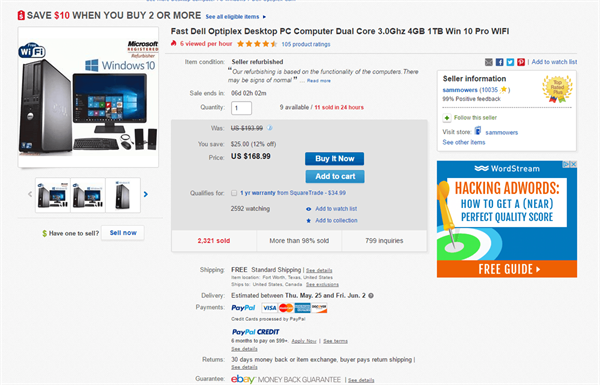Trust: The Crux of Branded Online Success

We live in an uncertain world, and we suffer from a trust deficit. Trust in institutions, government, politics, education, business and experts, is in steep decline. The respected Edelman Trust Barometer tracks trust: its 2017 annual report shows the continuing, shocking slide of trust. Distrust is the context for all branded digital leadership efforts, all branded mobile retailing apps, and all virtual branded connectivity from love matches to media links.
As we forge ahead with new ways in which to monetize via the vast virtual conduits at our fingertips we forget that without trust these miracles of merchandising and matching are doomed to failure. Trust reduces risk. Asking customers to be part of a branded relationship where one of the participants is invisible/virtual is risky and requires trust.
The adage that "seeing is believing" is no longer valid when I am not able to see the relationship partner. Engineering trust into the relationship creates credibility. A great example is eBay: a dual ratings system (peers and from eBay) provides the necessary transparency for engendering trust among perfect strangers. The marketplace also offers a money-back guarantee.

Marketers have fallen in love with the latest and greatest avenues of connectivity but have forgotten that even though the world of marketing has changed, the principles of marketing have not.
A brand is a promise of a trustworthy, relevant and differentiated experience. Customer perceived value has evolved to include trust as a multiplier of the total brand experience relative to the total brand costs. Your brand may provide a special experience at an affordable cost, but if there is low trust then there is low value. If there is no trust, then there is no value: anything multiplied by zero is zero. Trust affects the perceived value of your branded experience. And, trust significantly influences loyalty.
Trust means that you are willing to rely on the relationship partner because you believe the partner will deliver. You believe that the unseen partner has your best interests at heart, and that this unseen partner is motivated to safeguard your interests as well as, if applicable, the interests of employees, suppliers and any other stakeholders.
Trust happens over time. In our impatient world, we want everything now, in real-time. Maybe the feeling is that trust takes too much time: let's just hope that delight of the experience will be enough. If this is your mindset, you are in for a surprise. Trust takes time to build but the financial, social, and personal rewards are enormous. Trust is key for generating High Quality Revenue Growth. Forget trust at your peril!
Along with the technology-bending ideas, the trendy, transformative digital developments, and the living in the now mindset, add these three hallowed guiding principles - the Trust-Building Trifecta - to your online branding efforts.
1. Be the Most Trusted Choice
Trust affects decision-making. Being a trusted choice makes decision-making easier. A trusted choice creates one-think shopping: customers will not have to, nor will they want to, sift through a range of options. Transparency of supply chain or tracking the delivery of an item shows that you have nothing to hide.
2. Make Use Trustworthy
Does your app deliver the promise across all touchpoints? Does your online brand provide a trustworthy usage experience? Is it secure? Do I believe it has systems that protect my privacy? Is the personalization natural or clearly "off-the-shelf"? Is use too complicated? Are there too many questions or screens? Does it take too much effort? Too much time? Are customer service responses trustworthy? LovelySkin.com, for example, sells high-end beauty items. Thanks to live chat, the personalized, friendly, customer service responses enhance use of the site. LovelySkin also includes Google reviews directly on its homepage that remain fixed as a person scrolls down with security seals (BBB, for instance) showcased in its footer.

3. Ensure Trustworthy Reassurance
Customers want to feel reassured that the choice they made is the best choice. They want to feel comfortable with the choice. Your brand must put their mind at ease: no regret; no remorse. Customers do not want to feel that their trust is misplaced. Is this online choice the most responsible choice? If you want to put your mind at ease about dishwashing liquid, go to the Dawn website, see the baby ducks covered in suds, and learn about saving wildlife.

Trust is an intangible that has multiple tangible effects including profit. Online branding must follow the basic same rules of trust building. Trust cannot be relegated to sunny sayings. Engineer trust into every aspect of your online branding. Put trust at the heart of your online branding efforts: trust is the crux of all online branding.
About the Author
 Larry Light, a global brand revitalization expert, is co-author with Joan Kiddon of Six Rules for Brand Revitalization. He also is the Chief Executive Officer of Arcature (www.arcature.com), a marketing consulting company that has advised a variety of marketers in packaged goods, technology, retail, hospitality, automotive, corporate and business-to-business, as well as not-for-profit organizations. Prior to consulting, Light worked on the advertising agency side as a senior executive at both BBDO and CEO of the International Division at Ted Bates Advertising. He was global Chief Marketing Officer of McDonald's from 2002-2005 where he was involved in one of the most recognized brand business turnarounds. From 2010 to 2014, Light was Chief Brands Officer of the global hotels group IHG.
Larry Light, a global brand revitalization expert, is co-author with Joan Kiddon of Six Rules for Brand Revitalization. He also is the Chief Executive Officer of Arcature (www.arcature.com), a marketing consulting company that has advised a variety of marketers in packaged goods, technology, retail, hospitality, automotive, corporate and business-to-business, as well as not-for-profit organizations. Prior to consulting, Light worked on the advertising agency side as a senior executive at both BBDO and CEO of the International Division at Ted Bates Advertising. He was global Chief Marketing Officer of McDonald's from 2002-2005 where he was involved in one of the most recognized brand business turnarounds. From 2010 to 2014, Light was Chief Brands Officer of the global hotels group IHG.







